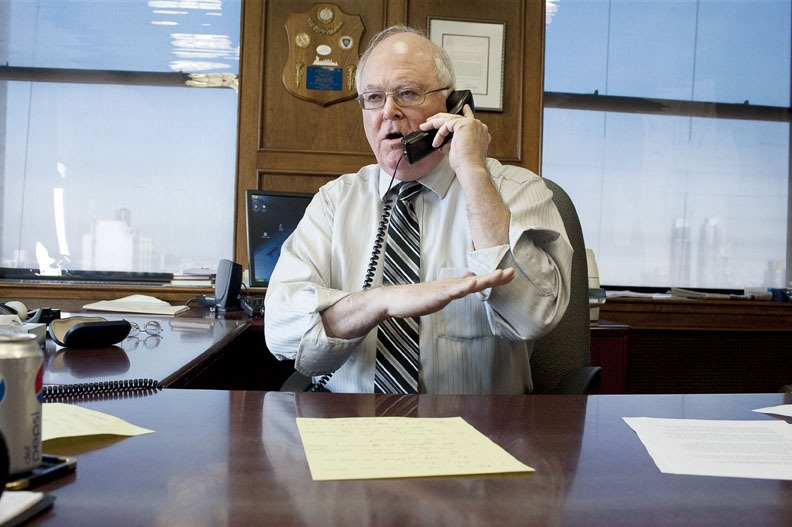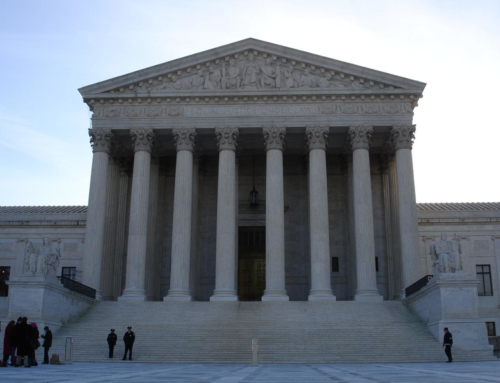July 1 marks my 23rd anniversary as president of the Catholic League. As such, now is a good time to reflect on our record.
One of the raps on the Catholic League has been that we are too tough and too pugnacious. That we are tough and pugnacious is true, but that we are inordinately so is at least disputable. Compared to whom?
I have often said that the Catholic League is responsibly aggressive: we are responsible because we are Catholic; we are aggressive because we are a civil rights organization. To be sure, there is a certain degree of tension built into that formula, but it can be negotiated. No matter, what should never be discounted is the resolve of our adversaries—they come to win.
I was in this job for about a year when I held a press conference at City Hall, downtown New York. I forget what I was speaking about—no doubt blasting someone—but I remember what happened when the event was over. After the cameramen turned off their equipment, they confronted me and said, “We’re all Jewish, and we were wondering why it took so long for Catholics to fight back?”
The New York Archbishop at the time, Cardinal John O’Connor, fought back all the time, and these men knew it: they were puzzled that lay Catholics didn’t do the same. Of course, this was why Father Virgil Blum founded the Catholic League in 1973; I was only doing what he expected the laity to do. While I never met him—I took over in 1993—from what I know of him, he wanted the Catholic League to be anything but wimpy. So I trust that he is happy.
There are those who think we should lower our voice, and become more diplomatic. This raises a few questions: Why is this criticism never leveled against other civil rights organizations? When was the last time you heard someone say that blacks, gays, Jews, and Muslims are too vocal? Even more to the point, why is it that Catholics are the ones making this criticism? How many blacks, gays, Jews, and Muslims complain that their defenders should lower their voice?
For some reason, Catholics are the only ones expected to play softball, even when the game is called hardball. Just as important, how many victories do the quiet ones have defending the faithful? If dialogue is all it takes to stop the bigots, then those who prefer conversation to confrontation should have a sterling record. Instead, they have nothing to show for their efforts.
When I first started in this job, there were some who were admittedly skeptical of me. This was to be expected: it happens when people start making noise and the ground has yet to settle. But after a wait and see period, decisions were rendered, and most of them were fair.
Soon into my tenure, serious accusations were made against Cardinal Joseph Bernardin, the Archbishop of Chicago. I thought the charges were bogus, and so I wasted no time defending him; he, in turn, wasted no time thanking me. For many conservatives, he was seen as being too liberal, and some were not happy with me for supporting him. One friend didn’t speak to me for a year.
Some fail to understand that my job is not to pick favorites; rather, it is to fight injustice. As far as I am concerned, if a prince of the Church is being unfairly attacked, that is sufficient grounds to defend him. It’s not even a close call. This is not a popularity contest—the contest we’re running is driven by the pursuit of truth, not votes.
Fortunately, being even-handed has redounded to my favor: the skepticism is mostly gone and bishops of all stripes know they can count on the Catholic League for their support.
It is particularly gratifying to note that even those who might prefer a softer approach know where to go when they need someone to do the heavy lifting. They are never turned down. It must be said, however, that if they were to wait for the friendly diplomats to secure justice, they would still be waiting. Diplomacy has its virtues, but when doggedness is called for, prudence dictates its exercise.
Just as our fans appreciate our manliness, many of our foes respect our fortitude. They may not support our cause, but they admire our tenacity. This is not hard to understand. For example, we can all marvel at the ability of ballplayers from the opposing team—even if we can’t cheer for them.
Similarly, we can respect our competition, even as we seek to win. This is especially true if they are honest. I, for one, would prefer to deal with an honest adversary before dealing with a dishonest ally.
It is possible to engage critics who are well-intentioned, but when dealing with dishonest foes, no amount of reason or data will persuade. This is why they must be challenged. Indeed, they must be defeated. That’s the Catholic League way. We didn’t invent hardball, but we know how to play.







